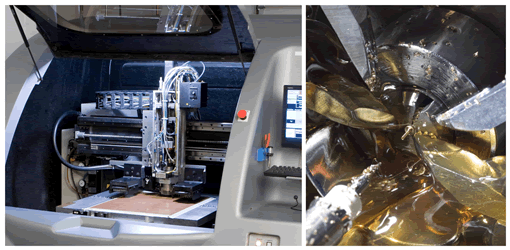Selecting an Automotive Connector Supplier
Five Things to Consider When Selecting a Connector Supplier for Automotive Applications
Burt Fisher, Applications Engineer, Advanced Interconnections Corp.
1. The Company – What’s Under the Hood
Automotive design engineers rely on their suppliers’ specialization and expertise to keep pace with the increasingly demanding interconnect requirements needed to support data-driven systems in connected vehicles. So, supplier selection criteria should begin at the company level. Consider whether the connector supplier specializes in the type of connector you need, whether they only offer standard options or can customize to application-specific requirements, and whether they do their own manufacturing or sell white-labeled products made elsewhere. Answering these questions will help determine whether the connector supplier can offer unique solutions, maintain quality, and quickly address any issues as application requirements evolve.
2. Design Assistance – A Great Partner for Your Road Trip or Backseat Driver?
To gain a competitive advantage in the growing autonomous vehicle market, automotive design engineers are balancing the rapidly increasing market for onboard features that sense, collect, and transmit data with shorter product development cycles. As such, engineers need answers and prototypes faster than ever. This can translate into a partnership in which the connector supplier becomes part of the design team.
Working with a smaller supplier can offer intangible benefits including easy accessibility, personal service, and an ability to roll with the changes. Having a personal contact to develop a relationship with while going through a design cycle can be very important, especially when sourcing custom connectors. In this case, the person developing the design can assess your initial requirements and leverage their in-depth knowledge to present a tight design that saves you time by hitting the mark.
3. Environment – Where the Rubber Meets the Road
Working with a dedicated connector design partner also helps ensure that all of the environmental factors that could potentially impact the end products are carefully considered, and that nothing is overlooked. Experienced connector designers will address factors including: the life expectancy of the product, where the assembly will be used (e.g., test lab, commercial grade vehicle, military vehicle, etc.), and replacement requirements, like whether a design requires the ability to replace a semiconductor or quickly swap out a sensor.
Applications’ environmental conditions present unique challenges for connector manufacturers. They have to consider factors including: the force required to maintain uninterrupted contacts, operating temperature, as well as plating material options and thickness. Mismatched materials at the interconnect interface will not function as well as matched materials, such as gold on gold or matte tin on matte tin. Matte tin interconnects require a higher contact force and locking mechanisms to keep the connector from moving and prevent fretting corrosion at the interface.
Improper plating materials and connection forces can lead to intermittent connections, which can result in end devices issues, such as losing GPS signal or malfunctioning infotainment systems. Automotive connectors are also employed in some of the harshest environments with regard to heat, cold, vibration, and chemical exposure, so ensuring robust connections is critical for optimal performance.
4. Quality – Take it for a Test Drive
Determining an automotive connector’s test and qualification plan should be a joint effort between the buyer and supplier. Design engineers should consider the supplier’s ability to certify that materials meet the necessary standards, ensure that they have the correct equipment to make proper measurements, and ask whether there are any test reports for the type of interface under consideration. Suppliers should be able to provide you with some information on the expected reliability of the interconnection.
Other supplier-level qualification factors include certifications (e.g., ISO 9001), the ability to meet environmental and regulatory requirements, such as RoHS and counterfeit parts prevention, and the ability to review their in-house capabilities to determine exactly what is under their direct control.

Figure 1: Selecting a connector supplier that offers in-house design and vertical integration, such as screw machining and drilling/routing, allows for total process control.
5. Service – Can You Count on the Pit Crew?
Whether you are buying an off-the-shelf interconnect or sourcing a customized device socket or connector, planning ahead to address the service side of your potential supplier can dramatically reduce order lead-time and potential downtime should an issue arise. Before the design process begins, engineers should ask about a supplier’s ability to accept or negotiate the buyer’s terms and conditions and quality requirements. Sometimes, these important aspects of an order are left to the purchasing department and are thus not discussed until the time a purchase order is issued, which could potentially delay or completely derail a project just before the victory lap.
Know your supplier’s order cancelation, warranty, and return policies. Ask about repair and replacement options, typical response times when an issue occurs, and whether you can continue to deal directly with your design point-of-contact, who will advocate for you internally, or whether you will be handed off to a representative from the supplier’s quality department. You don’t want to find out three weeks into a project that the supplier will not meet a condition written into your purchase order. You should also familiarize yourself with the terms and condition sent with the purchase order and consider whether your preferred connector supplier is an approved vendor or could become one to streamline future contract review.
The foundation of any successful connector design project is the relationship you have with your connector manufacturer. Getting to know your supplier, its in-house capabilities, and having a dedicated design partner who is looking out for your best interests can ensure that the ultimate product meets your technical requirements and crosses the finish line both on time and on budget.
Recently posted:
[related_posts limit=”10″]






